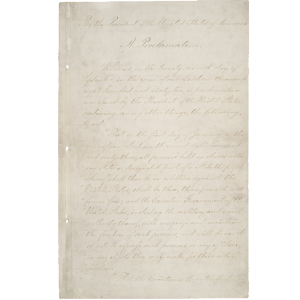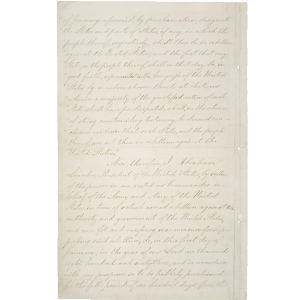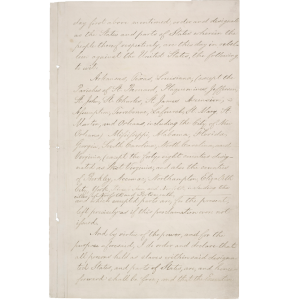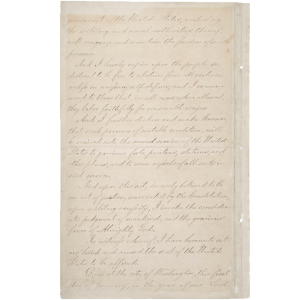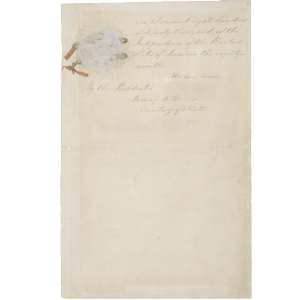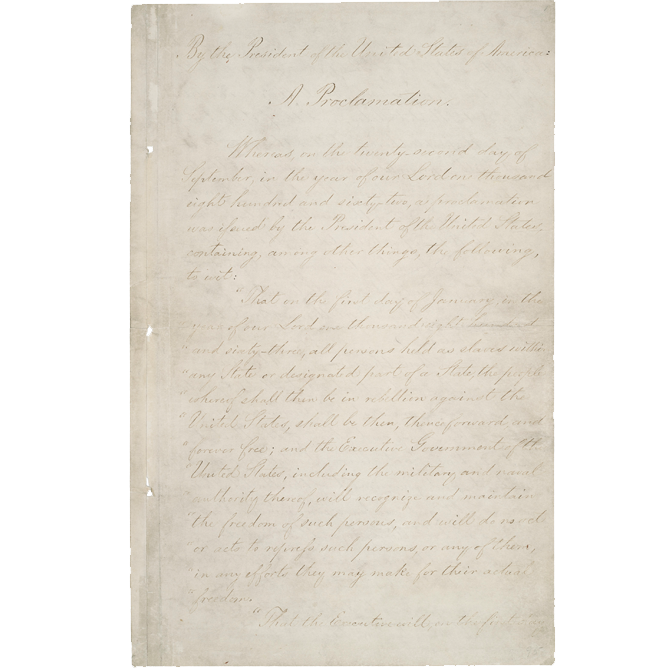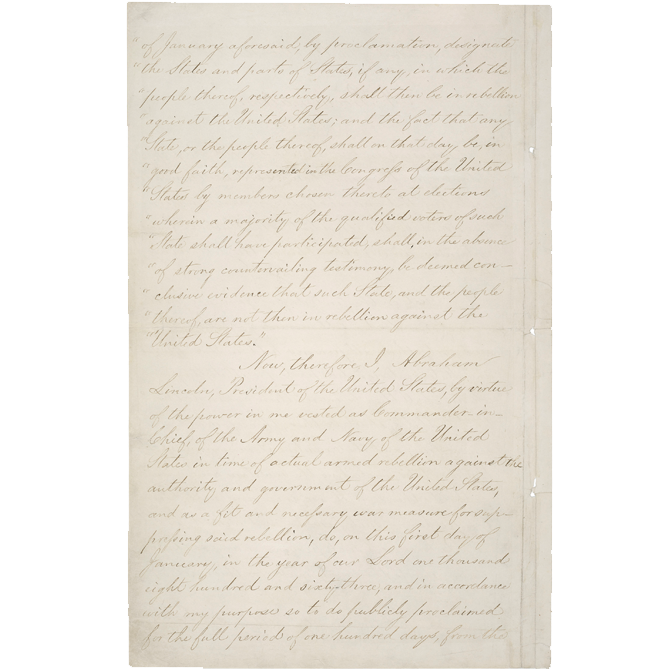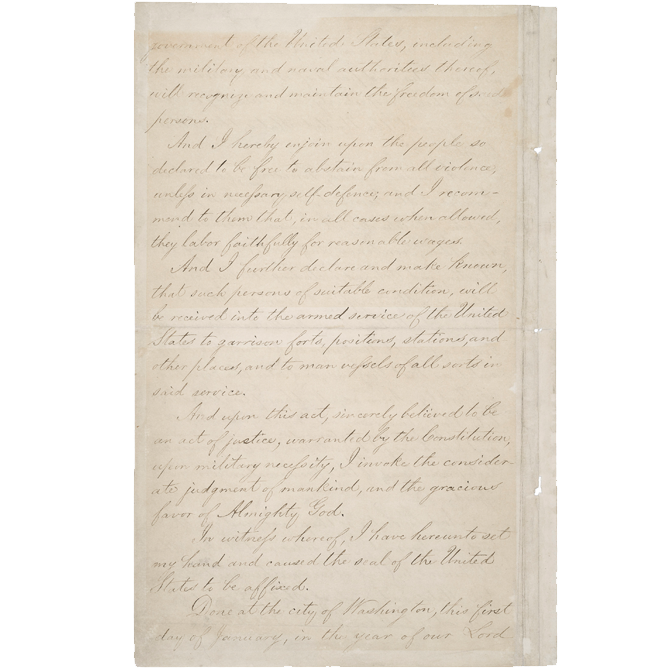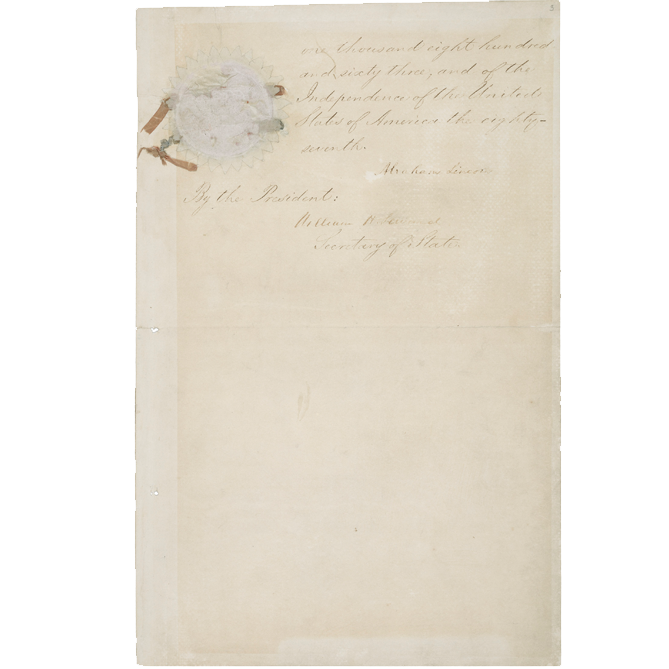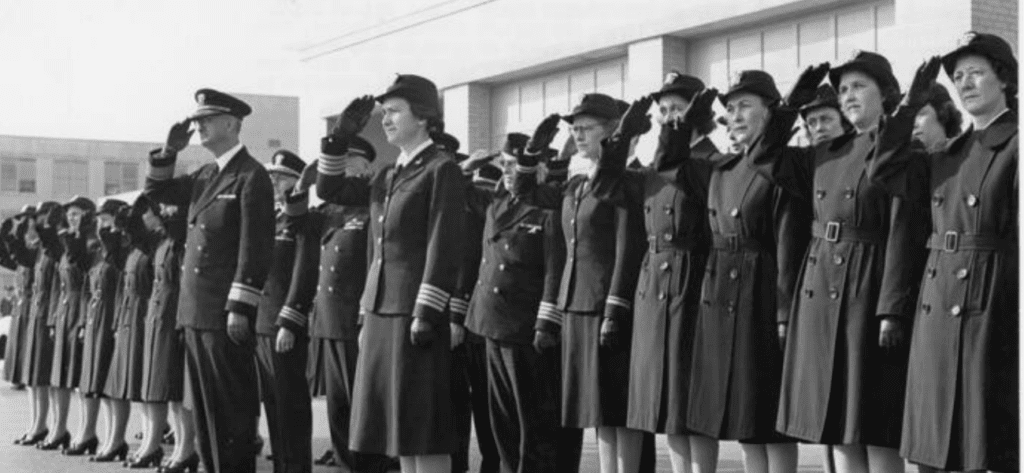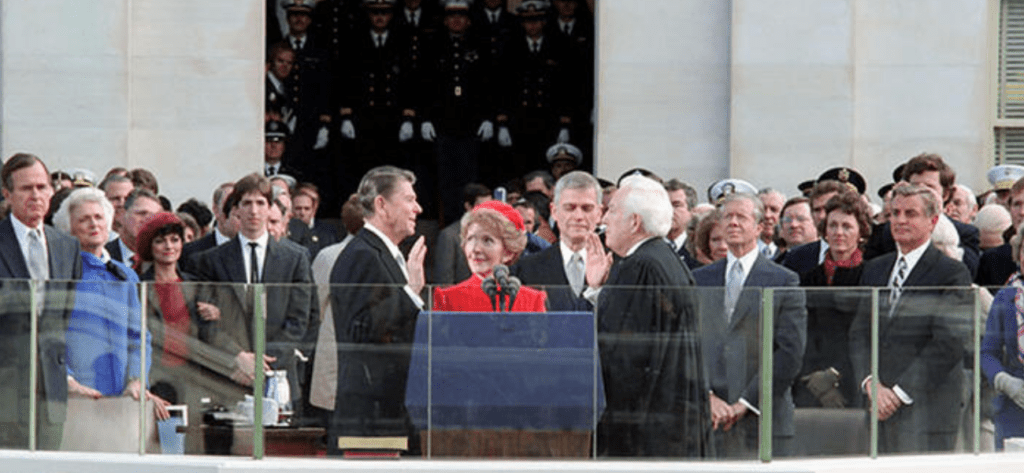On January 1, 1863, as the nation entered its third year of civil war, President Abraham Lincoln issued the Emancipation Proclamation, declaring “that all persons held as slaves” within the rebellious states “are, and henceforward shall be free.” Although its effects were gradual, the Emancipation Proclamation fundamentally transformed the Civil War from a war to save the Union into a war for freedom, announced the acceptance of black men into the Union Army and Navy, and eventually led to the ratification of the 13th Amendment to the Constitution, formally outlawing slavery nationwide. By 1870, the 15th Amendment also was ratified, giving African American men the right to vote.
Because of its pivotal role in slavery’s destruction and in the history of our nation, Lincoln’s Emancipation Proclamation is revered today as one of the great documents of human freedom.
The official Emancipation Proclamation, signed and sealed by President Lincoln 150 years ago, is safeguarded for the American people by the National Archives. To protect the document, National Archives conservators work closely with the exhibition team to limit the Emancipation Proclamation’s viewing to a few days each year. A high-resolution facsimile is on permanent display daily in the National Archives’ “Public Vaults” exhibition.
